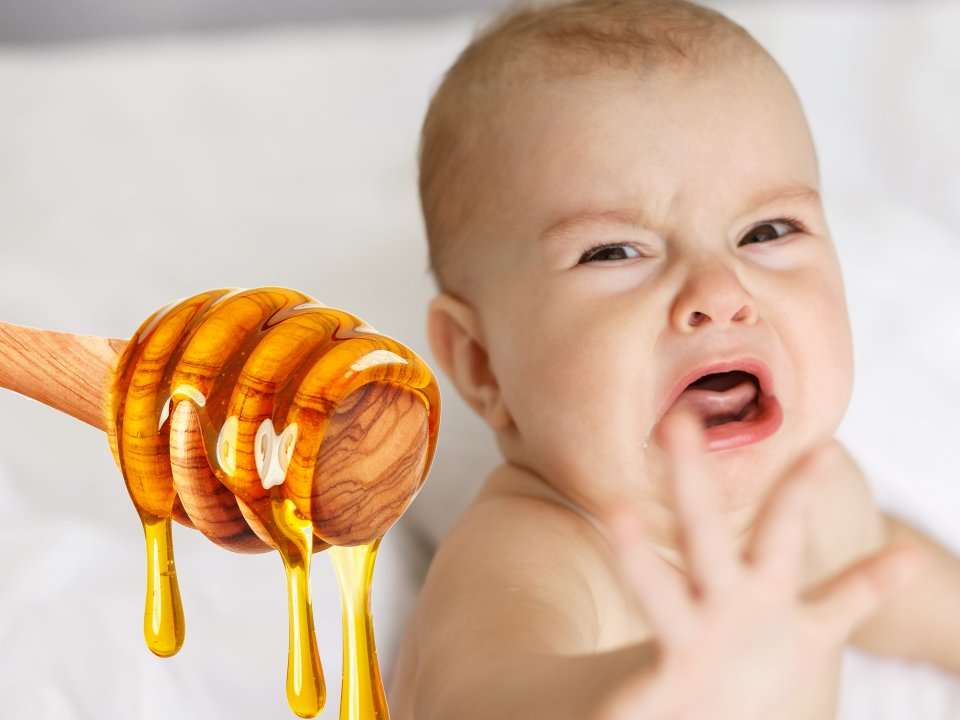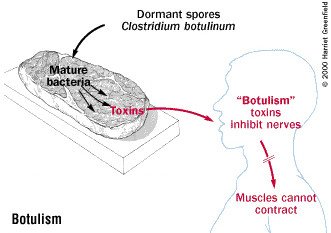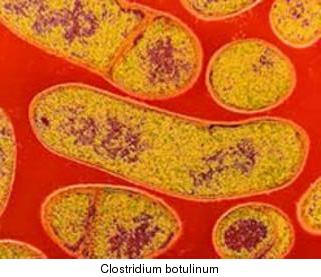botulism in babies timeline
Infant botulism usually affects babies who are 3 weeks to 6 months old. Risk factors include swallowing honey as a baby being around contaminated soil and having less.

Lizzie O Connor Ms Rd On Instagram A Baby Younger Than One Can Get Botulism By Eating Clostridium Botulinum Spores Foun Honey Clostridium Botulinum Spore
The diagnosis may be challenging because of its rareness especially in patients showing atypical presentations or concomitant coinfections.

. In the United States most cases of botulism occur in infants with an incidence of approximately two cases per 100000 live births. Infants who acquire botulism range in age from six weeks to nine months with the peak incidence occurring at two to three months of age. Constipation is almost always the first sign of infant botulism.
Clostridium botulinum is a gram-positive anaerobic bacillus that is spore-forming. Babies are at risk of infant botulism until they reach about 1 year of age. Infants with botulism are afebrile suck poorly and are lethargic and listless.
Although infant botulism is rare timely diagnosis is essential because 50 to 70 of affected infants may require. The disease results after spores of the bacterium Clostridium botulinum or related species are swallowed temporarily colonize an infants large intestine and produce botulinum neurotoxin. Thats because their mature digestive systems can move the toxins through the body before they cause harm.
About 90 percent of infants with botulism are younger than. The youngest reported patient was 2 weeks and the oldest was 12 months. The work of Thompson et al 1 presents findings in nine Utah patients with infant botulism.
Although isolated cases of C. Infant botulism is a rare but serious gastrointestinal condition caused by exposure to Clostridium botulinum C. Byzantine Emperor Leo VI documented cases of fatal food poisoning in the.
Although about 98 of affected infants present between 1 and 6 months of age infant botulism is reported as early as the first week of life and as late as 12 months of age. Infant botulism usually affects babies who are 3 weeks to 6 months old. Title 17 California Code of Regulations CCR 2500 2593 26415-264320 and 2800-2812 requires that healthcare providers report known or suspected cases of infant botulism to the jurisdiction in which the patient resides.
About 90 percent of infants with botulism are younger than. This most common form of botulism begins after Clostridium botulinum bacterial spores grow in a babys intestinal tract. They often are described as being floppy.
It may occur as early as early as 6 days and as late as 1 year. Botulinum spores which germinate into bacteria that colonize in the gut and release toxins. Foodborne botulism was the first of the 3 entities to be described.
In most adults and children older than about 6 months this would not happen because. Different from foodborne botulism caused by ingestion of pre-formed toxins in food it occurs when infants ingest C. Please report any suspect infant botulism case to your local health jurisdiction through appropriate channels.
Botulism is a broad term encompassing 3 clinical entities caused by botulinum toxin. Do not wait for laboratory confirmation to initiate consultation or treatment. First recognized in 1976 infant botulism occurs globally and is the most common form of human botulism in.
These bacteria are harmless to older kids and adults. Baratii type F have been reported C. Infant botulism most commonly affects babies 3 weeks to 6 months old but babies are at risk until they are 1 year old.
Propagation of this toxin under different circumstances can lead to food-borne wound or infant botulism. Avi T now a healthy and happy child was treated for infant botulism in 2006 Brandon M. Botulinum types A and B primarily cause infant botulism 4.
Constipation poor feeding ptosis facial and generalized weakness are considered to be the classical signs of infant botulism. Butyricum type E and C. Unlike food-borne botulism infant botulism is caused by ingestion of spores not by ingestion of a preformed toxin.
Botulism is a potentially lethal neuroparalytic disorder caused by the toxins produced by Clostridium botulinum. Pediatrics 1981 68 4. Babies are at risk of infant botulism until they reach about 1 year of age.
Before their first birthday their digestive system has not become developed enough to. What is infant botulism IB. The condition can occur in.
Mean age of onset is 13 weeks with a range from 1 to 63 weeks. It can affect babies up to age 1 but is most common between three weeks and six months. Infant botulism occurs mostly in young infants between 6 weeks and 6 months of age.
Infant botulism is an intestinal toxemia. They develop the same descending weakness and. The incubation period is 10-30 days with the peak age of occurrence around 3-4 months.
All types of botulism can be fatal and are considered medical emergencies. Infants who acquire botulism range in age from six weeks to nine months with the peak incidence occurring at two to three months of age. It typically occurs in babies between the ages of 2 months and 8 months.
About 90 percent of infants with botulism are younger than. Infant botulism most commonly affects babies 3 weeks to 6 months old but babies are at risk until they are 1 year old. Bacteria from the spores can grow and multiply in a babys intestines producing a dangerous toxin.
The neurotoxin binds to cholinergic nerve terminals and cleaves intracellular proteins necessary for acetylcholine release resulting in bulbar. Infant botulism occurs mostly in infants under 6 months of age. Infant botulism is a rare and underdiagnosed disease caused by BoNT-producing clostridia that can temporarily colonize the intestinal lumen of infants less than one year of age.
Consultation Treatment and Testing Steps Infant botulism is a medical emergency. Holding a memento of his treatment with BabyBIG Infant botulism is an orphan rare disease that affects infants primarily under 1 year of age. The inactive state is also heat-resistant.
Causes of Infant Botulism Babies can get. Infant botulism occurs most often in infants 6 months. Infants who acquire botulism range in age from six weeks to nine months with the peak incidence occurring at two to three months of ageAbout 90 percent of infants with botulism.

Babydoc Club Uk New Parents Did You Know Sweet Honey Can Be Harmful For Baby Yes It S Yummy In Porridge But Has Been Linked To Rare But Serious Infant Botulism The

From Milk To Solids Baby Food Guidelines For The First Year Baby Food Chart Baby Food By Age Baby Food Recipes

Sengupta Hospital And Research Institute Infant Botulism Happens When A Baby Ingests Bacteria That Produce A Toxin Inside The Body Here Are The Symptoms Facebook

What Parents Need To Know About Botulism

Babies Can T Eat Honey Because It Can Cause Infant Botulism Here S What That Means Business Insider India

Botulism Guide Causes Symptoms And Treatment Options

Four Infants Hospitalized For Botulism After Using Pacifier Funny Pictures For Kids Pacifier Infant

Welcome To The Infant Botulism Treatment And Prevention Program

Proximal Myopathy Anne Nurse Study Notes Muscle Weakness Nursing Study

Vestavia Pediatrics Did You Know That Children Under 1 Should Not Be Fed Honey Honey May Contain The Bacteria That Causes Infant Botulism A Rare But Serious Illness The Experts At

How To Avoid Botulism When Canning At Home Cleveland Clinic
A Breastfeeding Story Breastfeeding Through Infant Botulism
/babys-first-year-14-5b7c174cc9e77c0050bca8cc.png)
8 Month Old Baby Milestones And Development

Kids Eat In Color Ever Wondered Why Kids Can T Have Honey Until 1 Here S The Answer This Rule Was So Annoying To Me Because No One Ever Explains Why




